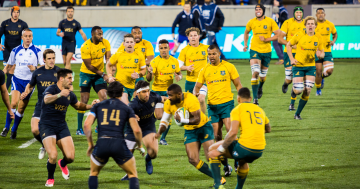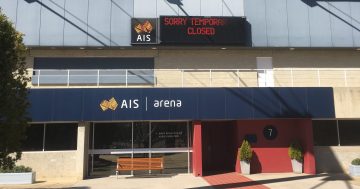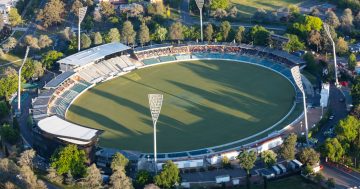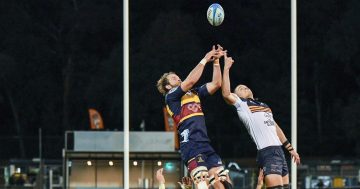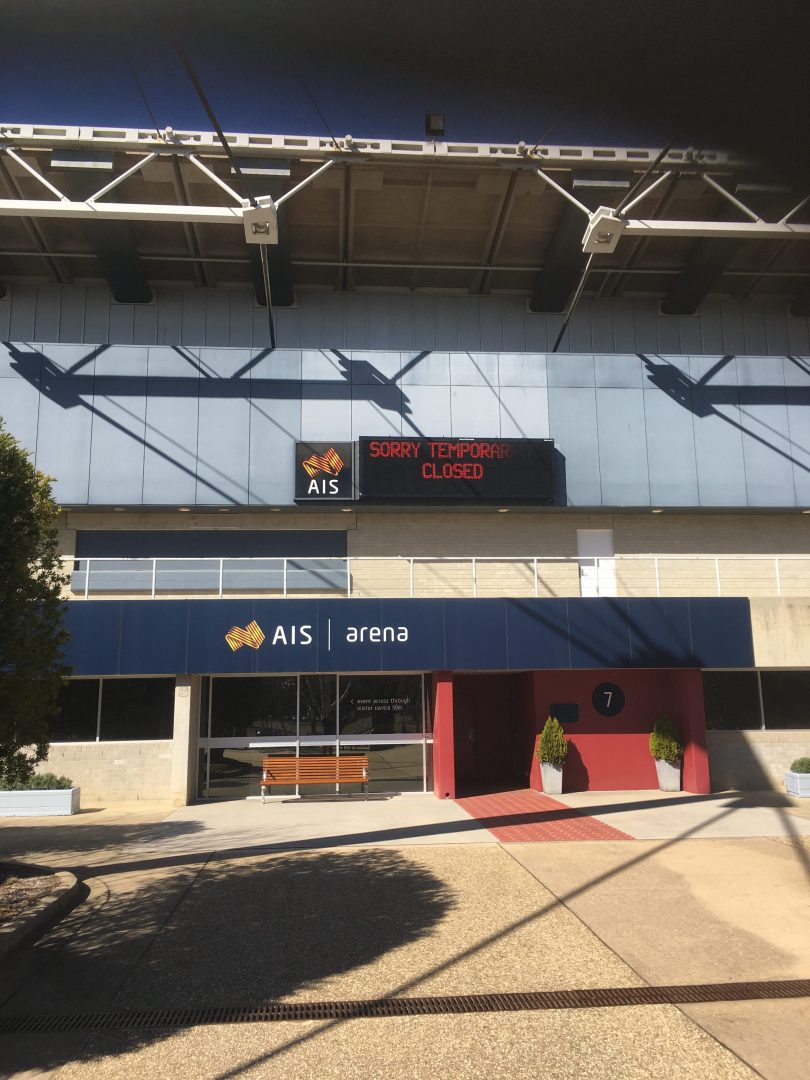
AIS Arena isn’t an option as a venue for major sports events as it is currently closed. Photo: Tim Gavel.
Several years ago, I was in a meeting with representatives of a sports peak body. They were canvassing their desire to stage an international event in Canberra.
They extolled the reasons why Canberra was so important to their desired end. Vital to their argument was if the sport was going to be seen as truly national, the city’s virtues of being the capital and a growth area were significant.
The conversation went on for a while before the subject turned to money. The sports organisation would, of course, require a substantial amount of money from the ACT Government to attract the event to Canberra.
So after establishing the ACT’s importance to the future of their sport, it was clear they were reliant on the ACT Government stumping up a substantial fee to host the event. However, it was portrayed differently by the representatives of the sports organisation involved at the time.
As it turned out, the ACT Government’s offer was less than what the sport was seeking and the event took place elsewhere, no doubt with the same emphasis on strategic importance but with a financial caveat.
And so to the present day, and the same financial demands are being placed on the ACT Government to stage major events in Canberra by a number of sports organisations.
The government opted against bidding to be a host city for the 2023 FIFA Women’s World Cup, so the matches will instead be played in Adelaide, Perth, Brisbane, Sydney and Melbourne, but not Canberra.
The ACT Government also opted against bidding for the men’s T20 Cricket World Cup in 2022, which will be hosted in all major capital cities as well as Geelong and Hobart, but not Canberra.
However, Canberra will host a women’s Ashes Cricket Test at Manuka from 27 January next year and a men’s T20 International against New Zealand in February 2022.
Currently being publicly played out is whether the ACT Government has a desire to bid to be a host city for the 2027 Rugby Union World Cup with the granting of preferred bid status to Australia.
Given Australian Rugby’s financial position and the quest to make as much money as possible out of the tournament, it could mean that Canberra, home to Australia’s most successful Super Rugby franchise, misses out if the ACT Government isn’t willing to pay for the privilege.
The expectations are high that governments and stadiums around Australia will pay handsomely to be one of the 10 venues to host the Cup.
Of greater concern, I would have thought for the ACT, is that there are no venues to host major sports events.
Manuka Oval, with a 15,000-seat capacity, along with the ACT Hockey Centre, are the only two venues capable of staging events at the moment.
Canberra Stadium continues to be an issue, while the AIS Arena remains out of action, effectively ruling out WNBL finals, Super Netball, netball internationals, National Basketball League and basketball internationals, and volleyball internationals.
The ACT needs to get venues sorted before even beginning to bid for major sport.













